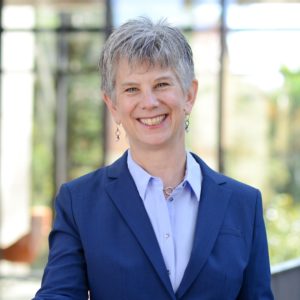Welcome to the Mills Legal Clinic!

It’s hard to believe, but the Mills Legal Clinic reached its tenth anniversary last year. How time flies when you’re having the time of your life, serving clients and educating the next generation of leaders in the law! As we launch our 11th year, I find myself reflecting back on our first decade, and looking forward to exciting new initiatives for the coming year and beyond.
Founded in 2007, the MLC grew substantially in its first ten years, from an original handful of clinics — all of which are still going strong — to a robust set of ten. (The 11th clinic at SLS, the Criminal Prosecution Clinic, operates outside of the umbrella of MLC, to prevent conflicts of interest.) Recognizing that the legal profession is increasingly global and interdisciplinary, we have expanded the program’s offerings to enable students to experience myriad and diverse modes of legal practice and advocacy, including trial-level and appellate litigation, transactional/corporate practice, interdisciplinary and international advocacy, and public policy work.
While expanding the program, we have remained true to our commitment to public service, and to the representation of and partnership with under-represented or otherwise marginalized groups and individuals. Our original commitments — to serve low-income communities and to protect our natural resources — remain strong, and have in fact been strengthened by the addition of new clinics with compatible missions, such as the Criminal Defense Clinic. Other clinics added more recently, however, take our public service mission into other realms, including serving nonprofit organizations that otherwise could not afford top-flight advice, artists and innovators seeking a voice in the crowded legal and policy debates about innovation, and inmates fighting for the freedom to engage in their religious practices. We also now operate in the international realm, partnering with global organizations to document and advocate to eliminate human rights abuses across the world.
As our program has grown, we have maintained and even deepened our commitment to the highest quality educational experience for our students. As ever, SLS clinics stand apart nationally in two foundational ways. First, students participate in each of the MLC clinics on a full-time basis for an academic quarter. This immersion enables students to live the life of a lawyer in their practice, fully dedicated to their clients’ matters and to their own learning. We believe this is a difference in kind, not just degree, from the more typical part-time clinical experience. Second, each of the MLC clinics is headed by a professor who is a member of the SLS faculty. These senior lawyer-educators, joined by experienced attorney-instructors in each clinic, are not only renowned in their fields but also dedicated to specific demands of the clinical teaching mission. In all ten MLC clinics, the signature method remains the high-touch, intensive interaction and personalized supervision each clinic student experiences with our remarkable faculty.
With our expansion over the last ten years, we now have capacity to serve 100% of the SLS student body. Students have embraced our expansion, and we have seen a steady growth in enrollment. More than 70% of each recent graduating class has participated in the clinics, and we anticipate that percentage going even higher as SLS implements its experiential learning graduation requirement.
We’ve had a tremendous first decade, but are also always seeking to improve and innovate. I want to share two exciting initiatives currently underway. First, we are delighted to announce the launch of an interdisciplinary social work collaborative within the MLC. With the hire of a clinical social worker, the MLC will operate as a host site for social work students who will work in collaboration with law students to meet our clients’ varied needs. This project will advance the interests of MLC clients, and will also give SLS students the chance to experience cross-disciplinary collaboration, a crucial skill in today’s diverse professional world. We anticipate the first social work students to join us in fall of 2019.
Second, we have committed new resources to improving our curriculum and internal office operations with respect to issues of implicit bias, cross-cultural competence, and diversity and inclusion in the legal profession. In conjunction with other SLS programming, we are working to ensure that every MLC student will have the opportunity to explore enduring challenges of hierarchy and bias within the legal profession and legal institutions. Our goals with this initiative include creating a learning and working environment in which everyone feels valued, and equipping MLC students with the skills and confidence they need to take leadership roles on these issues as they enter the profession.
I hope it’s apparent how proud we are of our roots and our mission, and how excited we are about our future! I am unendingly honored to be a part of this enterprise and I thank every student, professor, staff member, and client who has contributed over the years to the growth of the Mills Legal Clinic and to clinical education at SLS.
Cheers to an exciting new decade ahead!

